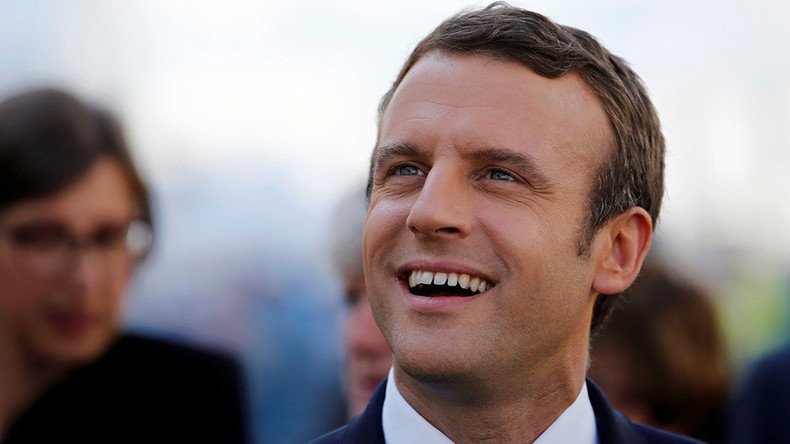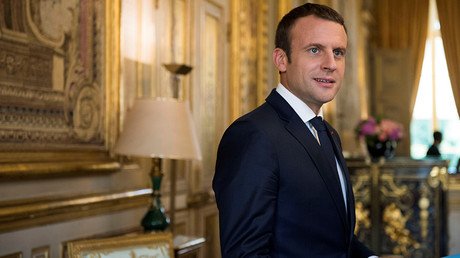‘Macron is right on Syria; you can’t impose your system on other countries’

To succeed, French President Macron has to play to public opinion, and his position on Libya and Syria indicates what it stands for, says Brian Becker from the ANSWER Coalition. The war in Syria could end quickly, but the US wants to keep it going, he adds.
President Emmanuel Macron cautioned that France might be repeating the same mistakes in Syria it did intervening in Libya in 2011. He highlighted that he no longer sees the removal of Assad as an absolute priority and called for a diplomatic solution.
He also named terrorism as the most pressing issue surrounding Syria and called on countries to unite in the fight against it.
RT: Macron said the West's intervention in Libya was a mistake, causing more harm than good, and called on countries not to repeat it with Syria. How significant is this admission?
Brian Becker: This is a major shift away from the previous policy of the French government. The French government, in fact, was the leading voice demanding the NATO bombing of Libya…This constitutes a major shift. And you have to ask yourself “why?” Macron… is not linked to any political party. In other words, for Macron to succeed he has to play to public opinion. I think the position he is announcing regarding Libya, renouncing the former French policy and saying in Syria that the overthrow of Assad should not be a priority, and that “we don’t want to do the same thing in Syria that we did in Libya,” is an indication of what French public opinion stands for, which is to oppose this kind of adventure in the Middle East.
RT: Macron also said the removal of Syria's President Bashar Assad is not a priority anymore. Do you think other allied countries such as the US are ready to get on board with that idea?
BB: There are two pieces to that puzzle: one is whether Assad could be overthrown. I think the answer to that really is ‘no.' Ever since the Russian government came into Syria in a military way, and said the Syrian state and the Assad government was an indispensable player in the defeat of terrorism, it became quite evident that the Assad government could not be overthrown…
RT: Russia and Iran have been spearheading negotiations on Syria through the Astana process, but Western countries and the Gulf States, haven't been very involved. Do you think a diplomatic solution is still possible in the Syrian conflict?
BB: I think it is still possible. I think that people in Syria want the war to end. I think the Syrian government has a decisive upper hand militarily, but you can see by the US military intervention to the west of Raqqa and trying to create safe zones in southern and south-west part of Syria, I think the US is trying to keep the war going because the US won’t be satisfied until it has its sphere of influence inside of Syria. Otherwise, the war could end and end quickly.
It is a welcome change of attitude because he is taking more realistic, more Gaullist position, namely that France doesn’t have as its role to intervene in internal affairs of others states and to overthrow regimes. - Jean Bricmont, Belgian theoretical physicist, and philosopher, professor at the Université Catholique de Louvain
RT: The French president also said democracy cannot be imposed from outside but is that not exactly what those countries supporting the Syrian rebels have been trying to do?
BB: The imposition of democracy has always been a pretext. What really was going on is the US government under George W. Bush and its allies in NATO wanted to take control of the Middle East with its vast energy resources, they had to give it a noble cause, and so they called it freedom or democracy or ending weapons of mass destruction. All the time it was a cynical maneuver to capture and gain domination over this geostrategically important part of the world. Macron is right, you cannot impose your system on other countries, but I don’t believe it is really what the US was ever trying to do.
The statements, views and opinions expressed in this column are solely those of the author and do not necessarily represent those of RT.













